BEHIND THE SCENES
Rehearsals & preparations
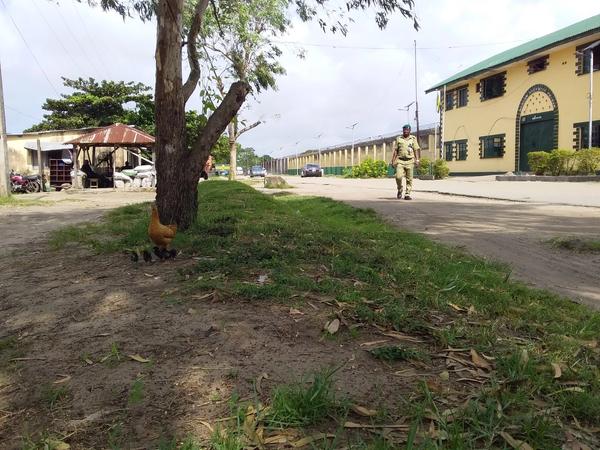
The Informal Justice Court Project started with several visits to Lagos and its prisons since 2018. To get an understanding of the Lagos’ justice and prison situation preliminary research was conducted and a
network of stakeholders was built during this first two-week visit in January 2018. In collaboration with the African Artists’ Foundation and the Dutch Embassy in Nigeria a multidisciplinary seminar and exhibition was organised in Lagos.
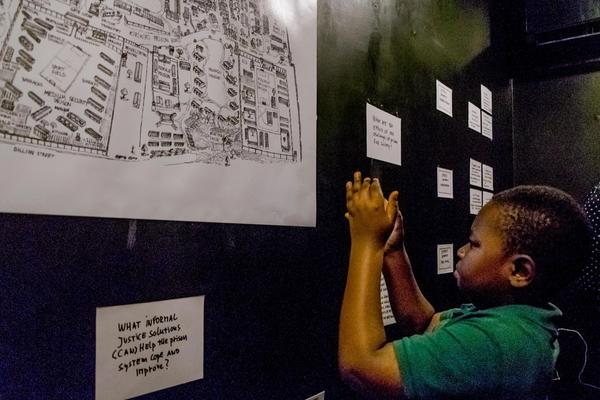
In August - September 2018 Aardschap Foundation came back to Lagos for a 5-week period to gather additional perspectives. Seminars were organized with scholars, artists and professionals from the justice and prison system. Extensive fieldwork was done with visits to courts and prisons. Together with government agencies, local NGO’s, and universities the project was further developed into partnerships. The results of this research have been brought together in the exhibition “Informal Justice Court Room”, hosted by the African Artists’ Foundation in Lagos in 2018.
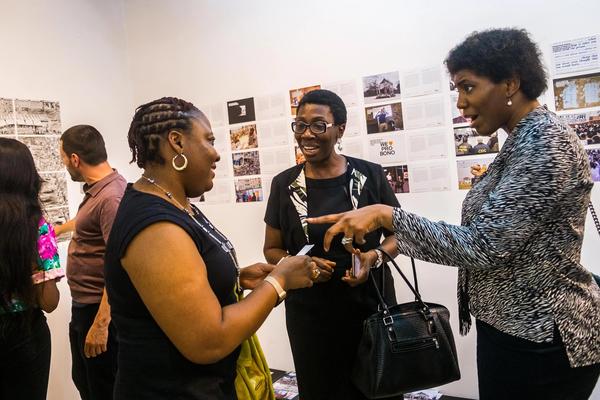
After a period of further research in the Netherlands and putting a lot of energy in strengthening the network, a third visit was made in May 2019. During a three-week period a second exhibition was held at the African Artists’ Foundation, showcasing the proposition of an action research program. The exhibition created an alternative meeting point to gain insights for professionals and meet peers of different branches of the justice system. As a result, the partnership with the Public Interest Law Partnership (LPILP) secured the permission from the Nigerian Correctional Services to conduct the project in Ikoyi Prison.
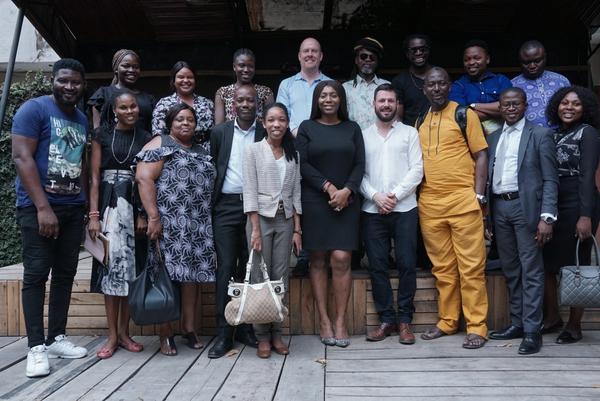
During a fourth visit in February 2020 a two-day workshop program was organized with all the participants in the project: the Nigerian Correctional Services, the theatre makers, the pro bono lawyers and representatives from our partners PILP and the African Artists Foundation. During the workshop a detailed plan and timetable were finalized. The start was scheduled in July 2020 but had to be postponed because of covid-19 till March 2021.
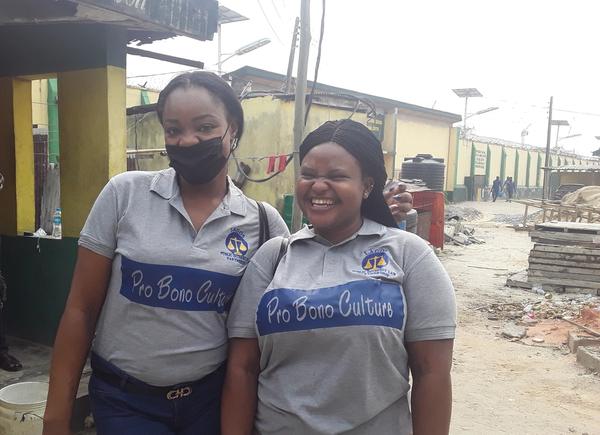
Stage 1: Legal Clinic stage
In September till November 2020 the selection of inmates was carried out. A group of 80 inmates was drawn from the Lagos criminal information system based on their type of crime and back ground. These inmates were interviewed by the legal and theatre team with the aim to see whether they would be willing to participate and to ask them about their pre-trial detention situation, background and theatre skills. From this group the participating partners selected 30 inmates that represented the larger Ikoyi prison population. To select the convicted inmates, the team reached out to the Nigerian prison service to identify potential candidates. 5 convicts were selected based on their position in the informal hierarchy among prisoners and the time they still have to spent inside the prison.
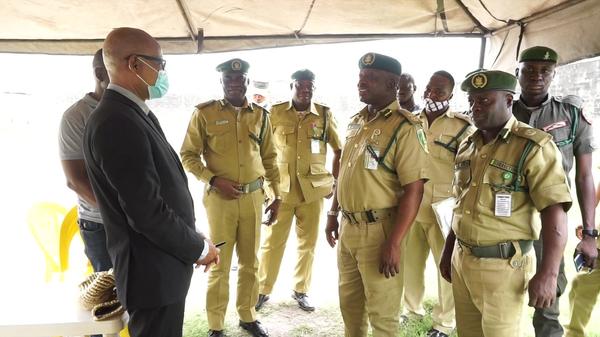
Stage 2: Training Program stage
From March 29 30, 31 till April 1, we conducted the training program in Ikoyi (Stage 2). The 35 selected inmates learned about the functioning of the formal court and were educated about how to prepare their cases. An extra 10 inmates per day were allowed to sit in as an audience. This way the group of inmates attending the program became much larger. Several experts were invited to teach them, such as a judge, a prosecutor, a restorative councillor, and law professor. On March 31 we welcomed a Magistrate Court Judge and Professor of Law of University of Lagos. On April 1 a Prosecutor from the Office of Public Prosecution and the head with her staff members of Community Service Department of Lagos State attended the training program. They witnessed how the inmates conducted the informal justice court, gave presentations about their work and answered questions of the inmates, which often lead to a lively debate.
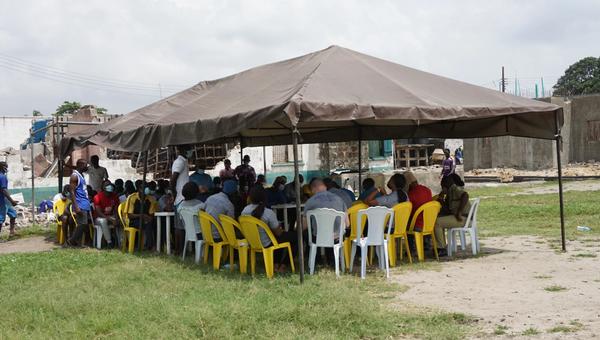
Stage 3:Informal Justice Court stage
After the inmates did the training program, the informal justice court was in session for two weeks (April 6 till April 14). A tent was set-up on the football pitch to have a place for the court sessions apart from the big crowds of inmates swarming around the prison compound. We done the cases of 18 inmates during these days, cases ranging from attempted murder, cultism, to fraud and stealing.
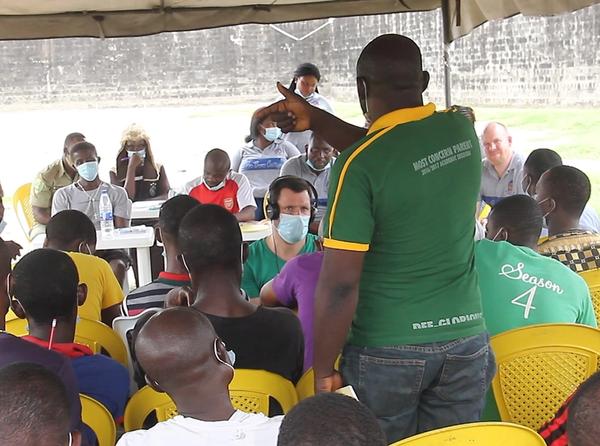
An informal court session consisted of three parts. First, the defendant (the inmate) explained in his own words what had happened, his background and the status of his case. Based on his case, the roles were assigned. The essential parts of the case were practiced. This could be a cross examination, a bail out, a trail within trail. The inmates played the roles of judge, prosecutor, witness, clerk and police officer. The pro bono lawyers helped the inmates and give advice, at some moments they took over as prosecutor or defense lawyer to explain certain elements to the inmates. The judgement was done in a group discussion. The audience (inmates) was asked to reflect on the case and the lawyers were given the opportunity to share their opinions given their experiences in similar cases. A case in the Informal Justice Court typically took around 1.5 hours. The theater makers teached the inmates acting skills by confronting them with how they present themselves in attitude, storytelling and vocal talent.
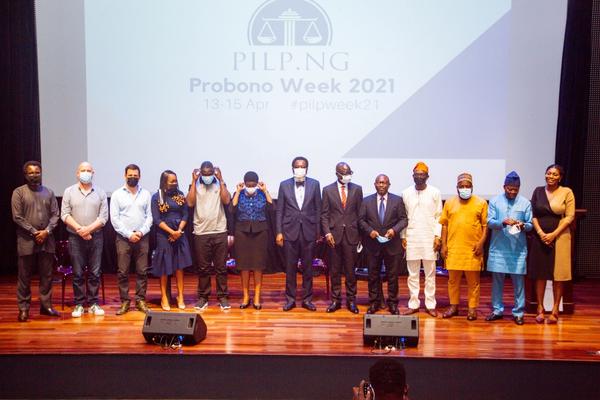
Stage 4: Theatre and Deliverables stage
On April 14th, after three weeks of Informal Court sessions, we organised the conference Justice delayed, justice denied? An interdisciplinary evening on accessing justice in Lagos at Alliance Française to share our first insights. Alongside a theater performance about the project, followed by a round table discussion on implementing alternatives to pretrial detention, the Attorney General Lagos State Moyosore Onigbanjo commented on the Informal Justice Court as a way forward in the challenges of the justice system in Lagos.
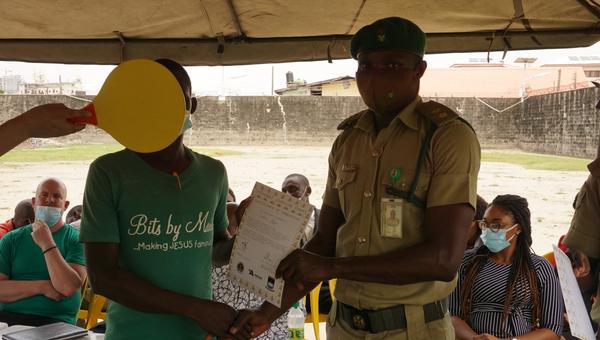
After April 14, the inmates themselves assigned their leadership and continued the informal court sessions. The leadership is structured according the court set up; The judge, the prosecutor, defence lawyer, and a register. Every second Wednesday the informal court is in session in Ikoyi prison, where the inmates are assisted by legal experts and pro bono lawyer. The leadership collect and prepare the cases during the two weeks.
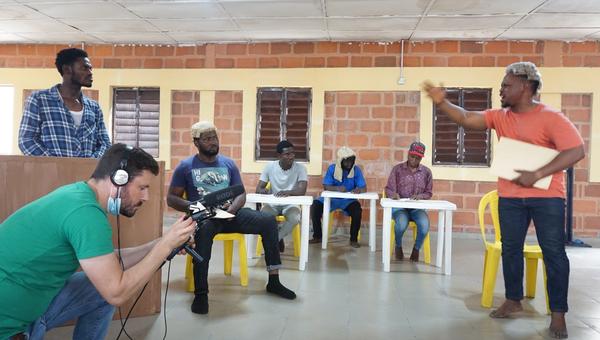
The last phase of the project was dedicated to the theatre play. Dr. Tunde Azeez wrote OBJECTION Sustained, a theatre play following the principles of the Yaroba Opera, where modern story telling is fused with traditional heritage. It’s comparable with the European activism of Bertol Brecht, where reality is always part of the staged play, and the audience is included in the story. Objection sustained is based on true life experiences of inmates at Ikoyi prison, particularly awaiting trial inmates. The stories of the participating prisoners and the lessons and experiences from the informal justice court project are performed by a team of top class Nigerian actors such as, Toritseju Ejoh, Segun Adefila, Saheed Azeez, Oriyomi Joseph, Theresa Elerubo, Hamzat Sherifdeen, Mathew Gangbe and Semaco Ajose. The play aims to raise awareness among the general public and policy makers about the issue of unnecessary and prolonged pre-trial detention and stigmatisation of ex-convits in their bid to reintegrate with society. The program of the afternoon consisted of the play production and a discussion about prolonged pretrial detention with invited stakeholders and policy makers.
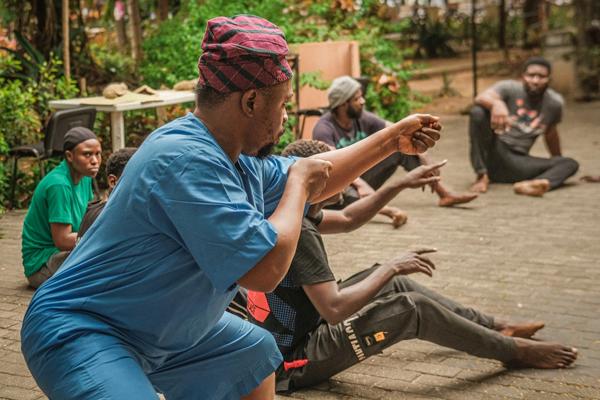
The performance was performed two times. First in Ikoyi prison on August 31st for other inmates of Ikoyi Prison, to sensitize and educate a larger group about their legal position and rights. And in Freedom park on the 1st of September 2021. The play will be taken by professional theater makers to different stages in Nigeria in order to reach a broad audience to mobilize the public to put pressure on the government.


